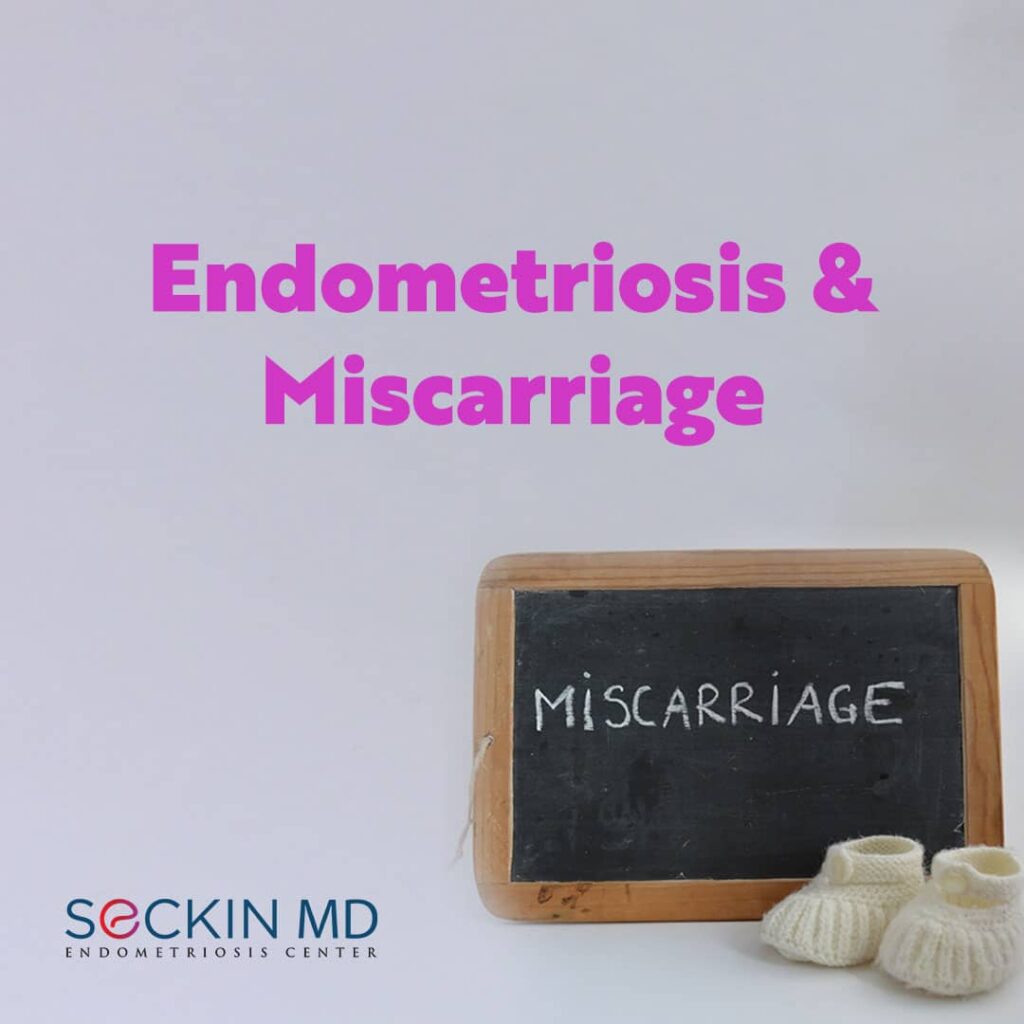Endometriosis and Miscarriage

While many women with endometriosis experience a healthy pregnancy, others with the condition may have an increased risk of pregnancy complications, which includes miscarriages.
What is miscarriage?
Miscarriage is the spontaneous loss of the fetus before 20 weeks of pregnancy. Around 10 to 20% of known pregnancies end in miscarriage.
Most miscarriages happen because the fetus wasn’t developing normally or had chromosomal abnormalities (such as Down Syndrome). The risk of chromosomal abnormalities increases as a woman’s age increases. However, there are also other factors that may increase the risk of miscarriage. These include autoimmune disease, obesity, certain viral and bacterial infections, smoking, and heavy drinking.
Symptoms include sharp pains, cramping, vaginal bleeding, and discharge of fluid or tissue from the vagina.
Does endometriosis increase the risk of miscarriage?
Research is ongoing to investigate the relationship between endometriosis and miscarriage.
A recent systematic review, which included 39 studies found that that women with endometriosis had an increased risk of miscarriage (1.83 times increased risk) compared to women without the disease if they conceived spontaneously. However, there was no increased risk if they conceived using assisted reproductive technology such as in vitro fertilization (IVF) or other methods.
How may endometriosis lead to miscarriage?
The exact mechanism of how endometriosis may lead to miscarriage is not clear. However, researchers think that endometriosis-associated inflammation or altered shape of the uterus due to lesions and scarring may affect the development of the fetus and the successful completion of the pregnancy.
How to reduce the risk of miscarriage?
You may be able to reduce your risk of miscarriage in the following ways:
Treatments before conception
Depending on your age and other factors, your doctor may suggest endometriosis treatments before you conceive. These may help you achieve a successful pregnancy. They may include hormonal therapies to relieve symptoms, laparoscopic surgery to remove the endometriotic lesions around the uterus and ovaries, or the use of IVF to facilitate a successful pregnancy.
Reducing other risk factors
There are also lifestyle changes that could reduce other risk factors. These include eating a healthy balanced diet, regular physical activity, managing other conditions such as obesity or diabetes, and avoiding smoking or alcohol.
Precautions
Endometriosis-associated inflammation may be associated with a higher miscarriage rate. However, taking anti-inflammatories is NOT recommended if you have already conceived. In fact, taking anti-inflammatories (Advil/Motrin, naproxen/Aleve, diclofenac) even before conception (near the time of ovulation), may inhibit ovulation itself. This is because ovulation relies on an inflammatory process to release the egg.
Close monitoring
If you have endometriosis and are pregnant, your doctor should closely monitor the course of your pregnancy, especially in the first trimester. If you have any symptoms similar to those of a miscarriage, seek medical help immediately.
including the treatment of your condition with excision surgery
Get a Second Opinion
Our endometriosis specialists are dedicated to providing patients with expert care. Whether you have been diagnosed or are looking to find a doctor, they are ready to help.Our office is located on 872 Fifth Avenue New York, NY 10065.
You may call us at (646) 960-3080 or have your case reviewed by clicking here.